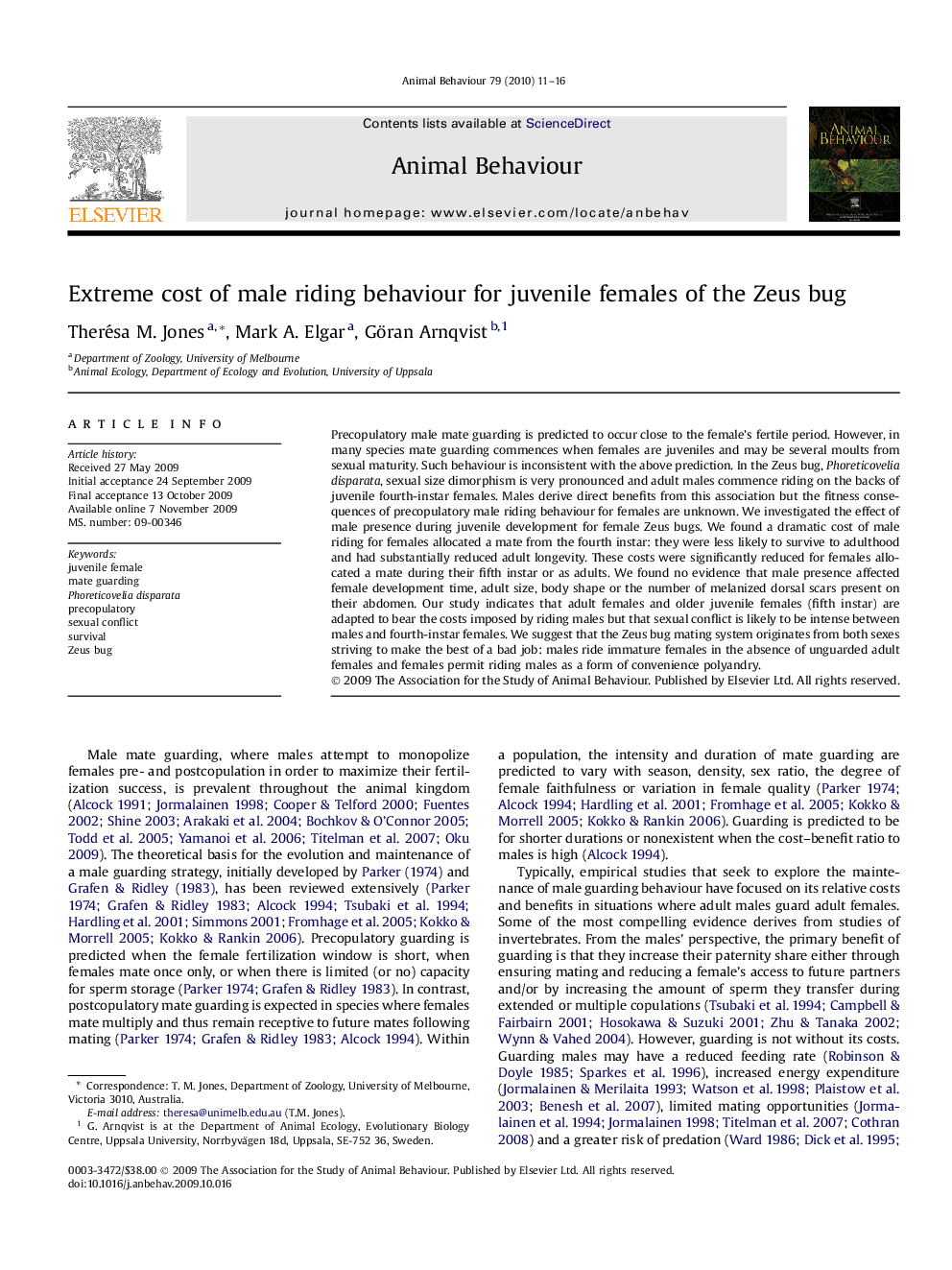| Article ID | Journal | Published Year | Pages | File Type |
|---|---|---|---|---|
| 2417697 | Animal Behaviour | 2010 | 6 Pages |
Precopulatory male mate guarding is predicted to occur close to the female's fertile period. However, in many species mate guarding commences when females are juveniles and may be several moults from sexual maturity. Such behaviour is inconsistent with the above prediction. In the Zeus bug, Phoreticovelia disparata, sexual size dimorphism is very pronounced and adult males commence riding on the backs of juvenile fourth-instar females. Males derive direct benefits from this association but the fitness consequences of precopulatory male riding behaviour for females are unknown. We investigated the effect of male presence during juvenile development for female Zeus bugs. We found a dramatic cost of male riding for females allocated a mate from the fourth instar: they were less likely to survive to adulthood and had substantially reduced adult longevity. These costs were significantly reduced for females allocated a mate during their fifth instar or as adults. We found no evidence that male presence affected female development time, adult size, body shape or the number of melanized dorsal scars present on their abdomen. Our study indicates that adult females and older juvenile females (fifth instar) are adapted to bear the costs imposed by riding males but that sexual conflict is likely to be intense between males and fourth-instar females. We suggest that the Zeus bug mating system originates from both sexes striving to make the best of a bad job: males ride immature females in the absence of unguarded adult females and females permit riding males as a form of convenience polyandry.
